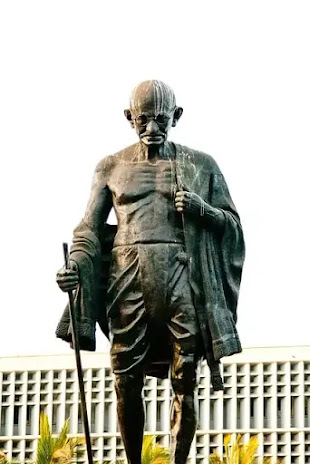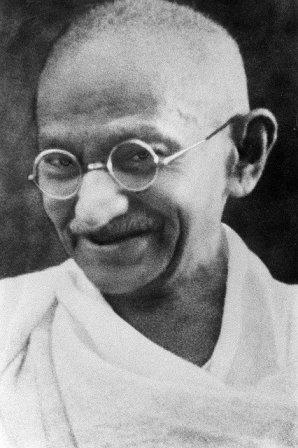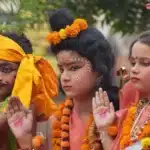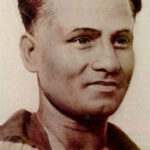INTRO
Contents
Mahatma Gandhi’s full name “Mohan das Karamchand Gandhi” was an Indian politician, lawyer, social activist, and writer who became the leader of the nationalist movement against the British rule of India.
It is also considered the father of India. Gandhi wanted to win from non-violence, not violence, to achieve social and political nature. he even resorted to non-violence, not violence, to drive the British out of India, and Gandhiji is also called “BAPU”.

Mahatma Gandhi was born on “2 October 1869” in Porbandar (Gujarat) India. Gandhiji was the youngest son of his father’s fourth wife.
His father “Karamchand Gandhi” who was the chief minister of Porbandar, the capital of a small concession in the western state, Gandhiji died on “30 January 1948”.
Gandhi mother, putlibai, was completely absorbed in religion, did not care much for finery or jewelry, putlibai was an extraordinary mother: she cared for her children with complete dedication, putlibai was 37 years old when her husband had to leave for Raikot due to disagreements with the government, where he died 10 years later.
Gandhi born into a privileged caste, Gandhi Ji proved quite fortunate to get a good education. in 1883, Gandhi Ji married Kasturba mkhanji, a 13-year-old girl which is an arranged marriage.
apart from this, Mahatma Gandhi was the many actions and his personal experience also led impact on personality.
1. Mahatma Gandhi background
- Mahatma Gandhi: Mohandas Karamchand Gandhi
- Born: 2 October 1869
- Birthplace: Gujarat, Porbandar
- Father: Karamchand Gandhi
- Mother: putlibai Gandhi
- Nationality: Indian
- Wife: Kasturba Gandhi
- Children: halal Gandhi, manilal Gandhi, Ramdas Gandhi, Devdas Gandhi
- Professions: politician, social activist, writer, or an Indian lawyer
- Death: 30 januray 1948 “5:17” pm
- Cause of death: Shot by a gun “nathuram godse”
- Death place: Birla house lawn in Delhi, India
His father was the chief minister of Porbandar in dewan, which was then the capital of a small concession in British India in the west (now in Gujarat).
Putlibai (who was from a wealthy Vaishnava family) is the fourth wife of Mahatma Gandhi’s father. and Mohandas Karamchand Gandhi was the son of putlibai.
2. Mahatma Gandhi ‘Education’ (पढ़ाई)
When Gandhiji was 9 years old he was enrolled in a local school in Rajkot and studied history, geography, and language, the economic language. he studied high school after completing his schooling.
Later in 1888 Gandhiji enrolled in samaldas College in ghavanager (Gujarat). but he was not satisfied with this only. later one of his family friends “maviji dave Ji” asked Gandhi to pursue further studies, so he left for London to study further.
At first, his mother and wife did not agree, but later Gandhiji gave him the satisfaction that he would not even touch non-veg, wine, and women.
2.1 Three years in ‘London’
In 1888, Gandhiji went to London to study law. 10 days later, Gandhiji joined a college called inner temple which was one of the four law colleges in London, and along with studying law, he took up residence in a London society and invited some vegetarian friends.
And at the same time, he joined a public speaking practice group and also overcame this hurdle to practice law. later Gandhiji was greatly influenced by his life after reading Bhagwat Gita.
In June 1891, at the age of 22, Gandhiji was summoned by a bar where he left London for India. there he realizes that his mother had died while studying law in London and that his family had kept this news for him.
2.2 Mahatma Gandhi: In ‘South Africa’
Gandhiji went to South Africa in May 1893 to work as a lawyer. there he had his first experience of racial discrimination.
when he was kicked out by a person on the train despite having a first-class ticket because there were blacks and that train was reserved for whites and no Indian or black people were allowed to travel in the first train was with the whites people.
This incident had a profound impact on Gandhiji and he decided that he would abolish this black, white discrimination, such incidents have earlier become quite common against Indians or black people who were derogatorily called collies.
The Abdullah case that brought him to South Africa ended in 1894, and the Indian community organized a farewell party for Gandhi as he prepared to return to India. however, due to the discriminatory proposal of a new natal government, Gandhiji had to extend the period of stay in South Africa.
He planned to help Indians by denying the right to vote and not supporting a bill, one right was proposed to be another European right. he asked joseph Chamberlain, the British colonial secretary, to reconsider his positive on this bill. though unable to halt the bill passage, his campaign was successful in drawing attention to the grievances of Indians in South Africa.
In 1894, he helped found most of the Indian Congress, and through this organization, he mobilized the Indian community of South Africa and united them.
In January 1897, Gandhi landed in Durban and was attacked by white settlers and he escaped from the efforts of the wife of the police chief.
3. Mahatma Gandhi movement (आंदोलन)
In. 1915, Gandhiji returned to India completely and became his patron with Gopal Krishna Gokhale, and joined the Indian congress.
Gandhiji got his first major achievement in 1918 under the leadership of Champaran and the kheda movement of Bihar and Gujarat. where he had the non-cooperation movement, civil disobedience protest, and Quit India movement against the British government.
3.1 “Quit India” movement (भारत छोड़ो आंदोलन)
The Quit India movement was largely a big movement in itself. it has been into many Indian languages. somewhere it is also known as August protest, there was a movement launched by Mahatma Gandhi the Indian congress committees Mumbai session on 8 August 1942 during world war 2. [1]
This movement was a movement for the end of British rule in India which spread like a fire across India to a great extent. after the failure of the Cripps Mission to secure Indian support against the British, Gandhi called for a “Do and Die” (करो या मरो) speech on 8 August 1942 in a quit India speech from the gowalia tank ground. [2]
The All-India Congress committee together with Gandhiji started a mass protest called “an orderly British withdrawal”. even were also fully prepared to take action. but within hours of Gandhiji’s speech, the entire Indian national congress was put in jail without any reason or evidence. most of the time spent in prison in contact with the public from the rest of the war.[3]
The British also had the support of the All India Muslim League, the princely state, Indian imperial police, British Indian army, Hindu Mahasabha, and the Indian civil service, in which most were Indian. [4]
And many businessmen did not support the movement to avoid heavy war expenses. somewhere the students also made their full contribution. by remembering Subhash Chandra bose (who was in support of exile supporting the axis power). [5]
The only overwhelming support came from the US because president franklin D. Roosevelt asked prime minister Winston Churchill to give some of the Indian demand. [6]
But even then the quit India movement was effectively thwarted by the British. the British flatly refused to give the then independence. [7]
The Quit India movement was no longer a movement. it had become a demand and a wish. by 1944 however, most of the demonstrations have been suppressed. [8]
In 1944, Gandhiji kept a fast in prison for 21 days for the release of the people. by the time of the second world war the place of the British in the world had changed dramatically and the demand for freedom now or now could not be ignored. [9]
4. Mahatma Gandhi Death (मृत्यु)
On 30 January 1948, time: 5:17 Gandhi was with his grandnieces in the garden of Birla house, on his way to address a prayer meeting, when nathuram godse [नाथूराम गोडसे] (an extremist was a Hindu nationalist associated with the Hindu Mahasabha) who shot 3 bullets into Gandhiji chest with a pistol.
According to some evidence, Gandhi died instantly. in other, some accounts say, Gandhi was carried into the Birla House, into a bedroom. there he died about 30 min and while dying, one of the members of the Gandhi family read some verses of the Hindu scripture.
Several other conspirators were soon arrested as well. according to historians and news, godsa said that he divided the country of India into two parts and by petitioning the subcontinent, many victims had to give their lives and killed Gandhi due to his complacency towards Muslims.
5. Mahatama Gandhi Awards (पुरस्कार)
- In 1930, Gandhi was named the man of the year by times magazine.
- 2011, time magazine named Gandhi is one of the top 25 politician icons ever.
- He did not receive a Nobel prize despite being nominated five times between 1937 and 1948.
- The government of India offers this Gandhi award to world leaders, special citizens, and distinguished social.
- Nelson Mandela, the leader of South Africa
CONCLUSION
Gandhi born into a privileged caste, Gandhi Ji proved quite fortunate to get a good education. in 1883, Gandhi Ji married Kasturba mkhanji, a 13-year-old girl which is an arranged marriage.
When Gandhiji was 9 years old he was enrolled in a local school in Rajkot and studied history, geography, and language, the economic language. he studied high school after completing his schooling.
In May 1893, Gandhi realized discrimination, when he was kicked out by a person on .he train despite having a first-class ticket because there were blacks and that train was reserved for whites and no Indian allowed.
30 January 1948, time 5:17 Gandhiji was assassinated by an advocate of Hindu nationalism who shot 3 bullets into Gandhiji’s chest with a pistol.




